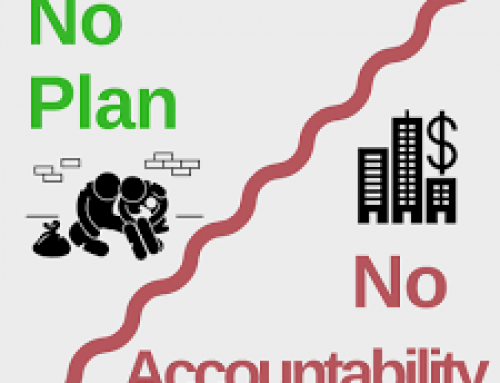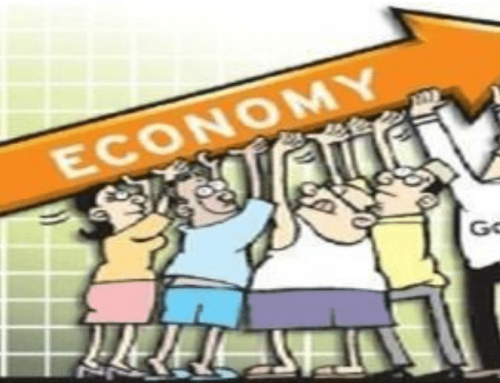Legislating incomes like minimum wages or a universal basic income doesn’t solve the real underlying economic problems.
February 18, 2019
By: Bobby Casey, Managing Director GWP

Whether people are calling for a higher minimum wage, or a universal basic income, these economic experiments have run their course and are proven failures.
Across the US, states’ leaderships are responding to the populist cries for a higher floor on wages. But how is it working out? New Jersey recently passed legislation mandating a $15 minimum wage by 2024. Small businesses are struggling to see how they are meant to remain competitive, much less stay in business.
The state of New Jersey, for example, is the last of the self-pump gas hold-outs in the union. Oregon finally buckled and is adjusting to pumping their own gas, but New Jersey still refuses. Gas stations throughout the state are wondering how the guy who pumps gas is supposed to make $15 per hour, without sending the costs through the roof.
These small businesses need to cut somewhere. Are they cutting down on quantity, quality, service, hours, employees… or all of the above?
All of this of course points to the obvious moral hazard: in the course of trying to help the struggling class, they break their backs on the inflated costs inherent in raising wages artificially. What is even more ironic, they would no longer be qualified for all the social programs meant to help them.
There’s a NYT headline that reads: “After Winning a $15 Minimum Wage, Fast Food Workers Now Battle Unfair Firings”. If you read the article, you will notice two things: 1. The NYT’s obvious sympathy for non-union workers; and 2. a sort of oblivion toward the correlation between employers being expected to pay higher wages and their subsequent higher expectations from those receiving that wage.
Unlike universities that demand higher tuitions, with little qualitative or quantitative return on that investment, employers still have the nerve to expect more if they pay more. And those same employers will be answering to a customer base who will be wondering what they get for the higher costs of goods and services tied to the minimum wage hikes.
Sadly, neither the employer, nor the customers, nor the employees win with legislation like this.
Finland took it a step further, and offered a 2,000 person sample a monthly guaranteed stipend. Whether they found a job or not, they could keep that monthly stipend of $634 USD (560 Euro). The hope (I say “hope” because it’s difficult to call this an actual theory) was that by eliminating the stress of unemployment, people would be more inclined to find a job, but also seek out employment that will last rather than settle for “just any job”.
It did not yield the results its advocates hoped for. While people were “happier” and less “stressed”, it did nothing to move the needle on unemployment. So, this experiment will not be renewed or expanded.
Finland has some of the highest unemployment in the Scandinavian region. It’s difficult to see it because they have something similar to the US when it comes to measuring unemployment. The US has U3 and U6 numbers. The U3 numbers are the ones the media likes to tout. U6 are the numbers that include those who gave up looking for employment.
In an article from Helsinki Times:
“Officially, a person has to meet three criteria to be classified as unemployed. He must neither be an employee or self-employed. He must have actively sought employment in the past four weeks. Finally, he must be available to work within two weeks. If any of these are not met then the person is not considered unemployed.”
What this fails to capture are those who are not actively seeking employment and those who are underemployed. The article was from 2014, and it refers to this phenomenon as “disguised unemployment”. At that time, Finland’s numbers were growing at a rate faster than that of any other European nation, save Italy.
The Finnish architects of this experiment don’t want to say that it “failed”… but rather that they now how new information to work with. Right. You either win or learn, as they say.
The question is whether enough learning took place! Is Andrew Yang, 2020 presidential hopeful, willing to relent on UBI based on the findings in Finland? No. In fact, he has selected two families to participate in his own self-funded UBI program, and intends to make this policy foundational to his run for POTUS.
He wants to fund it through a VAT, or Value Added Tax. His proposals is no different than the minimum wage which increases people’s incomes, and offsets that with inflated costs of living.
It looks like Alexandria Ocasio-Cortez also has an open mind toward policies like this. I mean how else do you give “economic security” to those “unwilling to work”?

It’s odd to see so many self-made individuals backing this idea: Elon Musk, Richard Branson, and Mark Zuckerberg to name a few. Even Andrew Yang, for that matter! Ever hear the old adage: Necessity is the mother of invention? If a UBI is instituted, you eliminate the necessity, as if that wasn’t painfully obvious.
If not, then perhaps you recall these sage words from Benjamin Franklin:
“I am for doing good to the poor, but…I think the best way of doing good to the poor, is not making them easy in poverty, but leading or driving them out of it. I observed…that the more public provisions were made for the poor, the less they provided for themselves, and of course became poorer. And, on the contrary, the less was done for them, the more they did for themselves, and became richer.”
Click here to schedule a consultation or here to become a member of our Insider program where you are eligible for free consultations, deep discounts on corporate and trust services, plus a wealth of information on internationalizing your business, wealth and life.




